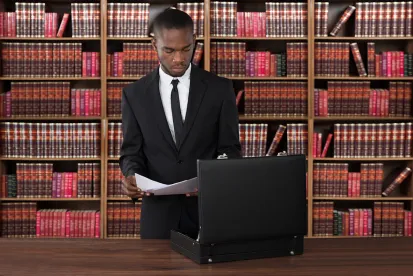Lawyers looking to improve their client response time have several options at their disposal. With the availability of email, text messaging, and social media communications, client demands for lawyers are higher than ever. Clients expect their lawyers or legal team to respond within seconds. And it’s not just because of smartphones – responsiveness to clients has been an important factor in lead generation for over a decade.
So how does a lawyer meet the demands for responsiveness while also handling all the legal work involved in the client’s case? Lawyers can’t be available 24/7 for client communication while also handling the case, not to mention having a personal life outside of the office.
Here are some tips on how to improve client response time for lawyers and balance other responsibilities.
Leverage Text and Live Chat
The digital natives are now of age to possibly need a lawyer. Millennials are a new segment in the legal industry, and many of them would prefer to text or email their lawyer instead of in-person meetings or phone conversations.
New legal technology allows law firms to offer text capability without sacrificing their personal phone or wasting time setting up a website chat. Law practice management software offers texting along with other features natively so you can keep track of all client communication in one place.
Outsource Receptionists
Missed calls can mean missed clients, which could cost the firm thousands of dollars each year. Instead of hiring more employees, a law firm can outsource to an answering service or virtual receptionist to assist with answering calls.
Of course, law firms should have a system to qualify a lead, including specific criteria for the ideal client and questions to ask. The virtual receptionists can qualify, process, and direct new leads, eliminating a lot of the backlog in communications.
Once the lead is verified, it could be passed on to the firm’s staff. This ensures that all potential leads are handled and no opportunities (or billable hours) are missed.
Systemize Referrals
If a lead doesn’t qualify, it doesn’t mean they’re lost. Law firms can set up a system for sending referrals to other attorneys for referral fees. For example, an unqualified lead that contacts the firm may be looking for a different area of practice, which the firm can then pass on to a referral partner to gain a return on investment for the time spent communicating.
Ideally, this referral system will work both ways and the law firm can gain some valuable clients in return. It’s also in a lawyer’s nature to solve problems, and referrals ensure that clients are directed to the most appropriate and capable attorneys.
Use Email Drip Campaigns
The legal industry is often regarded as traditional, especially when it comes to phone conversations vs. email conversations. It begs the question do clients prefer the phone, or that they get a faster response than with email? In many cases, emails to lawyers go unanswered, or take days for a response, leading the client to move on to another firm. In an environment where clients expect near-instant responses, that could cost firms.
One of the best ways a law firm can ensure that email is a viable mode of communication is with automated responses and email drip campaigns. Automated responses are pre-made responses to frequently asked questions, or simply an email that says something to the effect of, “we’ve received your request and we’ll get back to you shortly” to acknowledge that the message reached its intended recipient.
Drip campaigns are marketing-focused and triggered by certain client actions, such as submitting a contact form on a website. The messages are pre-drafted and scheduled to go out at specific intervals, such as immediately, three days later, and six days later. Templates make it simple to draft the full email sequence, and the emails can be scheduled for specific dates and times to ensure nothing is missed.
You can even bake this process into your onboarding by creating workflows or tasks with PracticePanther so you can track where a client or prospect is in the funnel. Additionally, you can create custom tags that help you identify the type of client, what they’re looking for, or how they found your firm — the possibilities are endless.
Consider Ethics and Security
Technology can do a lot of good for virtually every industry, including the legal industry, but it comes at a cost. As technology advances and firms modernize, privacy and data security must be the top priority. Law firms handle a lot of sensitive information, so it’s vital that client data is protected.
Responsiveness matters, but it should never come at the cost of security and safety. All client communication channels need to be secure, even if it means installing additional security measures or choosing cloud-based legal management software that automatically performs necessary updates to ensure your information is safe.
Schedule Time for Client Communication
Client communication has never been easier, but with that comes a variety of options and channels. With some clients communicating in person or over the phone, others choosing chat, and still others choosing to text, it can be difficult for lawyers to ensure all communications have a response and nothing is missed.
Law firms and lawyers should schedule time periods each day that are blocked out for communicating with clients on all available channels. Clients need responsiveness, but half-hour blocks throughout the day should be enough to stay on top of messages and provide the responses the clients need.
Improve Client Response Time by Setting the Tone
Lawyers need to be responsive, but there needs to be a balance between communications and other tasks. Human brains aren’t designed to shift rapidly between work tasks and “always-on” communication, especially via multiple client communication channels. Trying to do it all can take a toll on focus and time management.
Another concern is that a hyper-responsive lawyer can set up client expectations, leading to concerns during busy periods. The lawyer’s initial responsiveness sets the tone in the relationship, and it’s vital for them not to be too available.
Ultimately, lawyers need to strike the right balance between being available to clients and not creating a relationship with more difficult demands.




 />i
/>i

